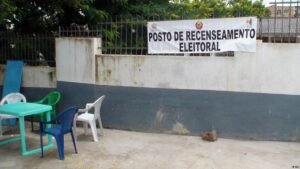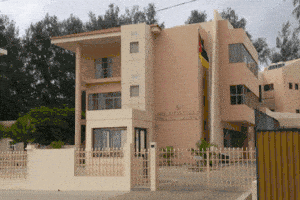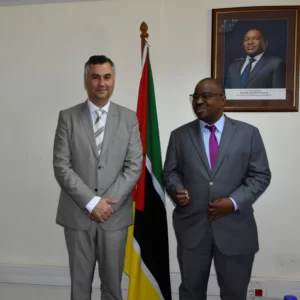The Vice President of Angola advances development prospects in the education, higher education, and environment sectors and calls for the awakening of Angolan women.
In a significant interview with TPA (Angolan Public Television), the Vice President of Angola, Esperança da Costa, announced actions to develop primary and higher education and to conserve and enhance the country’s biodiversity. The official also pointed to specific government programs to promote the empowerment of Angolan women.

In a significant interview with TPA (Angolan Public Television), the Vice President of Angola, Esperança da Costa, announced actions to develop primary and higher education and to conserve and enhance the country’s biodiversity. The official also pointed to specific government programs to promote the empowerment of Angolan women.
During a one-hour conversation, Vice President Esperança da Costa talked in depth about the actions of the Angolan executive in the three areas she oversees under the President of the Republic: education, higher education, and the environment.
The interview with the journalist Hariana Verás revealed the general lines of the educational programs already being executed, including “the increase of the network of preschools and primary education” and the objective of “establishing compulsory education up to the 9th grade.”
School meals in primary schools are the focus of another ongoing program expected to evolve into a national breakfast/lunch program.
Also, on the educational front, the Angolan government is working to “strengthen literacy for adults at the national level.” The executive’s program involves “about 5,000 volunteers”, she said.
Regarding higher education, the former university professor also supervises an area where the government “is making a diagnosis of the conditions of the infrastructures, to adapt them to the training offer.” By 2027, the executive intends to provide public universities with the autonomy and resources necessary to offer courses in STEM (science, technology, engineering, and mathematics) and to improve the quality of this level of education and the social conditions of teachers.
“Natural heritage and biodiversity are fundamental to sustainability.”
With a long academic career in ecology, botany, and fauna, including the publishing of books and articles, the Vice President also supervises the environmental area.
“As macro-targets,” said Esperança da Costa, “the government wants to ensure the food security of the population through more diversified food sources and seeks to map all kinds of natural resources to establish management and exploitation plans that translate into development and well-being.” within the framework of the National Strategy for Biodiversity Conservation, she said. “Protected areas in Angola have gone from almost 6% of the national territory to 12% and include both national parks and transboundary conservation areas. The parks are authentic laboratories for research on vegetation cover in Angola, in which 27% of the species are endemic, and 37% are medicinal plants.”
Regarding environmental issues, Esperança da Costa added that “Angola has a national strategy for climate change until 2035,” establishing guidelines for “adaptation to climate change and strengthening the resilience of our communities against extreme weather events, such as drought in the south of the country.”
“The role of women has to be valued.”
On women’s roles today, the first female Vice President of Angola repeated: “Education is the key to development.” She said that to support gender equality promotion and Angolan women’s empowerment, “the government has varied programs, including training actions and support for scientific research” led by “capable academics.”
In this strategy, women in rural areas will receive special attention. “We are directing credits to the most vulnerable women in these areas in the context of public policies of inclusive and sustainable financing,” she said.
In conclusion, the Vice President stated that “institutional mechanisms to support Angolan women exist” and that “the change in society’s awareness of the role of women is underway” in the country. “We can all get there together,” she said.








